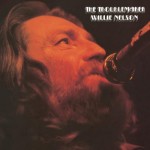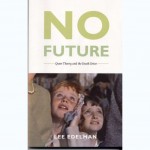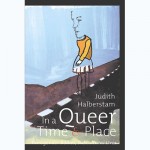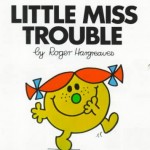 What, you say, could Hannah Montana possibly have to do with Judith Butler and gender performativity? If you are asking, this must be your first visit to my blog. This kind of crazy, seemingly impossible connection is what I do and is, for lack of a better phrase, how I roll.
What, you say, could Hannah Montana possibly have to do with Judith Butler and gender performativity? If you are asking, this must be your first visit to my blog. This kind of crazy, seemingly impossible connection is what I do and is, for lack of a better phrase, how I roll.
Anyway, my daughter RJP and son FWA have recently taken an interest in Hannah Montana. Perhaps they are a little too young for it, but they just want to be like their older cousin IIE (who incidentally now thinks Hannah Montana is “treated.” Selena Gomez and Demi Lovato are much cooler). This week we were watching one of the two Hannah Montana DVDs they possess (at least, so far) when an episode entitled “Good Golly, Miss Dolly” came on.
Before launching into an analysis of how gender is performed and enforced in this episode, let me offer this disclaimer: I have watched less than a handful of HM episodes (and by a handful, I mean about 4. Okay, I just saw the Hannah Montana movie with my kids two night ago, but I don’t think that counts. The tv formula is much different than the movie one). Because of my somewhat shallow knowledge of the show, I can’t speak to how gender is discussed/performed/reinforced/joked about in the whole series. Instead, I can only speak to how it functions in this one, (gender) troubling, episode from the first season.
So, I’m sitting on the couch between RJP and FWA watching the episode. A couple of minutes in, Dolly Parton shows up as Miley Stewart’s (aka Hannah Montana’s) Aunt Dolly. What can I say–someone could write a book about Dolly Parton and her parodic (intentional or not) performance of gender. And I am sure someone has–link anyone? Anyway, the appearance of Parton didn’t initially register as particularly gender troubling. Neither did the first mention by Miley’s Dad (Robbie Ray) or her brother (Jackson) of how Aunt Dolly was “girling” up the house with frufru pillows. It wasn’t until about 10 minutes in that I got really suspicious and started to think about and question how gender was working in this episode.
(note: I originally had youtube clips from the show here, but they no longer work due to copyright issues.)
The troubling inspiration for this blog: Hannah’s friend Oliver is over at her house. He tells her that he has to go because his Mom is dropping him off at school early. Suddenly there is a very deep, very masculine voice in the background yelling to Oliver to hurry up. Then, the following exchange between Oliver and Miley’s best friend, Lilly, occurs:
Lilly: I thought you said that was your mom.
Oliver: It is. [audience laughs] When she’s mad, she uses her man voice (said in a deep voice). [ha ha ha ha ha]
So, what’s so funny here? Is it just that we find it funny to hear a woman sound like a man? Wait, why is that funny? My immediate reaction was that it was just another example of how it is okay to make fun of trans folk (ha ha–his mom isn’t really a woman, but a man!) or women-who-are-really-lesbians (ha ha–his mom is soooo butch). While I think there is definitely some anti-trans/anti-gay sentiment lurking in this joke about the mannish Mom, I think there is something deeper (albeit connected) going on here. This joke, when placed in the larger context of this entire episode–with its persistent jokes about how Miley’s Dad and brother are being femininized by Dolly the uber femme Barbie–is about enforcing and regulating certain gender (more specifically heterosexual masculinity) roles. The threat of men acting like and then, gasp, possibly turning into women is the punchline of countless jokes throughout the episode.
Let me list off just a few examples:
Example 1: Robbie Ray, Miley’s father, comes in from his (manly) jog, looks around at all of the pink pillows on his couch, and comments on Aunt Dolly’s decorating: “Woah. Looks like my home has been invaded by aliens from the planet fru fru.” [Ha Ha Ha Ha from the audience]
Example 2: Jackson, Miley’s brother, is upset because his shirt smells too girly; it turns out Aunt Dolly used “special” fabric softener. Jackson is convinced that he will be beaten up for wearing it to school. [audience laughs and so does Dolly.]
Example 3, part 1: Jackson and Robbie Ray are upset because Aunt Dolly has replaced their regular (manly) shampoo with her girly shampoo; their hair becomes “volumized and dollycized.”
Jackson: I can’t take this anymore Dad. I mean, between the shampoo and the smelly tissues and the potpourri and all of these flowers, I mean, I’m losing my manly essence.
Robbie Ray: There’s only one thing we can do son. Let’s go the gym and fight back with the one thing she can’t take from us: our MAN stink!” [audience laughs]
Jackson: Uh, Dad. Could we maybe do it tomorrow? Aunt Dolly buffed my nails and I don’t want to ruin them.
Robbie Ray: Do you hear yourself son?
Jackson: Oh no! Get me to the gym fast. Argghhh!! [they run off as the audience laughs]
Example 3, part 2: Jackson and Robbie Ray are back from the gym and they smell bad (or stanky as Robbie Ray likes to say).
Robbie Ray: [smelling himself] Breathe that in son. That’s the sweet stench of independence, freedom and manly pride. [ha ha ha]
Jackson: I hear ya Daddy!
Jackson: [smells himself again] Awww… My eyes are burning, my eyes!
Robbie Ray: I’m so ranky, I taste my own stanky.
Jackson: I can’t stand it! I’m taking a shower and I’m using Aunt Dolly’s peach body wash with exfolliating loufa glove! [audience: ha ha ha]
Robbie Ray: Well you loufa all you wanna. I’m going to take a bubble bath with one of her citrus fizzy balls. [smells himself again] Maybe two! [audience ha ha ha]
Listing off these examples and watching the show again (this time more closely and without FWA and RJP) got me thinking about what exactly is troubling about how Robbie Ray, Jackson, Aunt Dolly and Oliver’s mannish mom play (as in: play their part, play with/against standard and accepted roles, playfully poke fun at) with gender roles in this episode. First, to understand the Jackson/Robbie Ray/Aunt Dolly storyline (and punchline), it is important to think about it in relation to the main storyline of the episode: Miley has a big crush on Jake Ryan but she is afraid to tell him how she feels. Aunt Dolly is trying to give her advice about how to get and stay in the game (that dating game, that is). So, the episode is all about relationships/heterosexual love and how men and women can learn to come together.
In light of this larger context, Robbie Ray, Jackson and Aunt Dolly seem to be playing the gendered (and heterosexualized) roles of women-as-wives and men-as-the-husbands-they-must-tame and playing with the gendering process of marriage as the domestication of (stinky, manly) men by (very feminine/girly, sweet-smelling) women. And, it seems as if they are poking fun at these roles–ha ha, isn’t it funny how men and women get along with each other: men try to hold onto their manly essence and freedom while women systematically take it away from by converting them into whipped, emasculated, frufru-loving wusses. And, ha ha, isn’t it funny that the only thing men have that women can’t take away from them is their manly stinky-stank? But, what are they poking fun at here? Is it the rigid gender system that (strongly) encourages little girls to turn into feminine, sweet-smelling women and boys to turn into stinky, independent, manly-men? Or, are they making fun of anyone who tries to resist this system–ha ha, you can’t fight it, so why bother trying. You’ll just look like an idiot (like Jackson and Robbie Ray) and you won’t be able to escape it anyway. The gender system (and the peach body wash with exfolliating loufa glove) will always get you in the end.
So, you may be asking yourself (those of you who have stuck around to the end of this lengthy entry), what does this have to do with Judith Butler and her theories on gender performativity and gender trouble? Well, Butler provides a great theory about how gender is a performance or a set of stylized acts and daily rituals that we repeatedly practice (rituals like washing with citrus fizzy balls or buffing our nails or even going to the gym so we can smell ranky and stanky). While we understand these daily rituals to be merely an expression of our gender (we take baths with citrus fizzy balls because we are girls and girls like to smell *pretty* or we go to the gym and work up a sweat without bathing because we are boys and boys like to smell *stinky-stanky*), Butler suggests that our practice of them, repeatedly and faithfully, does more than express (or indicate or signify) our gender; it helps to create it. It is through these repeated practices that we establish and reinforce that we are girls or boys. For example, how do we know that Aunt Dolly is a real woman, someone who can give Hannah Montana proper advice on how to win a boy’s heart and become a real woman herself? We know this because Aunt Dolly effectively performs her femininity/womanliness: not only does she decorate with pink frilly pillows but she smells great, she wears tight jeans with high heels, and she sounds like a woman with her sing-songy-cutesy voice. It is not the fact that she is a woman that establishes her credibility, it is the fact that she properly acts like one.
Here is a key point for Butler: these daily rituals (some we do deliberately, some we do not) produce the illusion that our gender performances (and the idea that girls smell sweet and boys are stinky) are natural–of course real girly-women smell nice and use pretty body washes and of course real manly-men smell stinky and don’t bathe much, duh. And to keep up appearances, we must repeatedly and faithfully practice those acts. When we don’t practice them as much as we should or we fail to practice them properly, we get into trouble, GENDER TROUBLE–like Robbie Ray, Jackson, and most importantly Oliver’s mannish Mom. These examples of gender trouble serve a dual purpose in the episode. First, they are meant to make us laugh. Ha Ha. Isn’t it funny to see these fools failing to do their gender properly? Second, they are meant as a warning to us. See what happens to men (Jackson and Robbie Ray) or women (Oliver’s mom) who don’t do their gender right? They become the butt of our jokes. So, make sure you always act properly! Now, in the case of Jackson and Robbie Ray, the poking fun is harmless enough. They are in on the joke and, perhaps because they are main characters, we like them and aren’t really making fun of them. But, what do we make of Oliver’s mannish Mom? I can’t help thinking that she is the real threat–what Butler refers to as an abject–that haunts our gender performances. And the laughter we make when we find out that the manly disembodied voice that calls out to Oliver to “Move! Move! Move!” is a she and not a he isn’t lighthearted and fun but nervous (and scared) laughter.
Just to be clear here: I really don’t mind my kids watching Hannah Montana. In fact, I don’t really mind watching it myself. I am bothered, however, by the inclusion of the joke about the mannish Mom. That joke changed the tone of the whole episode for me and made the playful gender trouble that Jackson and Robbie Ray were engaged in much more serious. I can’t help but wonder: Why do tv shows like this have to take the joke too far? Could there have been another way to play with gender in this episode so that (once again) getting into trouble wasn’t always accompanied by the threat of gender punishment? Would it have been enough to just leave out the mannish Mom joke? I don’t think so, but it would have been a start…
Wow. This entry was, in the words of my dad AEP, “a chewy bagel.”
Word count: 2021 words
 Cool. So, we can have a positive vision of queer ethics/theory/politics that is not shaped by some futural vision of hope. Instead of queer hope we have queer optimism. This idea hadn’t occurred to me and I am very interested in reading more about what Snediker is suggesting. I haven’t had a chance to get the book from the library yet, but I did find Snediker’s earlier essay from 2006 about queer optimism. I am in the process of reading it right now. In this essay, Snediker assesses the foundational queer-as-pessimistic suffering theories of Judith Butler, Leo Bersani, Eve Sedgwick and Lee Edelman and argues for an alternative: queer-as-non-futural-optimism. Huh? Here, I will let Snediker explain. Queer optimism
Cool. So, we can have a positive vision of queer ethics/theory/politics that is not shaped by some futural vision of hope. Instead of queer hope we have queer optimism. This idea hadn’t occurred to me and I am very interested in reading more about what Snediker is suggesting. I haven’t had a chance to get the book from the library yet, but I did find Snediker’s earlier essay from 2006 about queer optimism. I am in the process of reading it right now. In this essay, Snediker assesses the foundational queer-as-pessimistic suffering theories of Judith Butler, Leo Bersani, Eve Sedgwick and Lee Edelman and argues for an alternative: queer-as-non-futural-optimism. Huh? Here, I will let Snediker explain. Queer optimism






